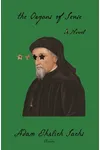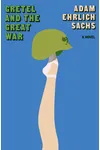Picture an American storyteller who spins tales of absurd humor and profound family ties—meet Adam Ehrlich Sachs! Known for his quirky, thought-provoking fiction, Sachs has carved a unique niche with books like Inherited Disorders and The Organs of Sense. His blend of wit, philosophy, and offbeat narratives has earned him critical acclaim, making him a hidden gem in contemporary literature.
From his Pittsburgh home, Sachs crafts stories that feel like a mix of Kafka’s introspection and a stand-up comedian’s punchline. Whether exploring father-son dynamics or the quirks of human perception, his work invites readers to laugh, ponder, and marvel at the strangeness of life.
The Making of Adam Ehrlich Sachs
Born in Boston, Adam Ehrlich Sachs didn’t start as a writer. With an AB in atmospheric science and an MA in the history of science from Harvard, he initially seemed destined for a lab coat, not a typewriter. But a detour through the Harvard Lampoon, a humor magazine, sparked his love for comedy and storytelling. After a stint as a screenwriter and a brief return to academia for a PhD in the history of science, Sachs found his true calling in fiction, where he could blend his scientific curiosity with his knack for absurd humor.
Adam Ehrlich Sachs’s Unforgettable Stories
Sachs’s debut, Inherited Disorders: Stories, Parables, and Problems (2016), is a collection of 117 vignettes that dissect father-son relationships with razor-sharp wit and surreal scenarios. From gymnasts carrying generational burdens to mathematicians cursed by inherited problems, the book earned a spot as a finalist for the Sami Rohr Prize for Jewish Literature and a semifinalist for the Thurber Prize for American Humor.
His second book, The Organs of Sense (2019), is a comic fable set in 1666, where a young Gottfried Leibniz investigates a blind astronomer’s bizarre eclipse prediction. Critics praised its blend of philosophical musings and slapstick humor, comparing it to Kafka and Thomas Bernhard. Sachs’s latest, Gretel and the Great War (2024), weaves a dark, playful tapestry of early 20th-century Vienna, exploring legacy and obsession through a series of nested tales. His style—precise, eccentric, and layered with Jewish humor—creates stories that linger like a clever riddle.
Influenced by Bernhard’s manic narratives and the concise absurdity of Daniil Kharms, Sachs’s work thrives on constraints. He once admitted to struggling with conventional novels, finding freedom in shorter, fragmented forms that let him explore the “embarrassing” act of writing with relentless creativity.
Why Adam Ehrlich Sachs Matters
Adam Ehrlich Sachs’s impact lies in his ability to make the absurd feel universal. His stories, rich with father-son tensions and philosophical quirks, resonate with readers who crave humor with depth. Awards like the 2018 NEA Literature Fellowship and the 2019 Berlin Prize reflect his growing influence in literary circles. By tackling themes of legacy and perception in a world teetering on madness, Sachs offers a lens to view our own chaotic times.
His work also champions the power of constraint in art, proving that limitations can spark innovation. As a writer who dares to be different, Sachs inspires both readers and aspiring authors to embrace their quirks and find beauty in the bizarre.
- Birthplace: Boston, Massachusetts
- Key Works: Inherited Disorders, The Organs of Sense, Gretel and the Great War
- Awards: 2018 NEA Literature Fellow, 2019 Berlin Prize Fellow, Sami Rohr Prize Finalist
- Fun Fact: Sachs once pitched a Ben Stiller movie that didn’t make the cut!
Ready to dive into a world of wit and wonder? Snag Inherited Disorders or Gretel and the Great War and lose yourself in Adam Ehrlich Sachs’s delightfully strange universe!

